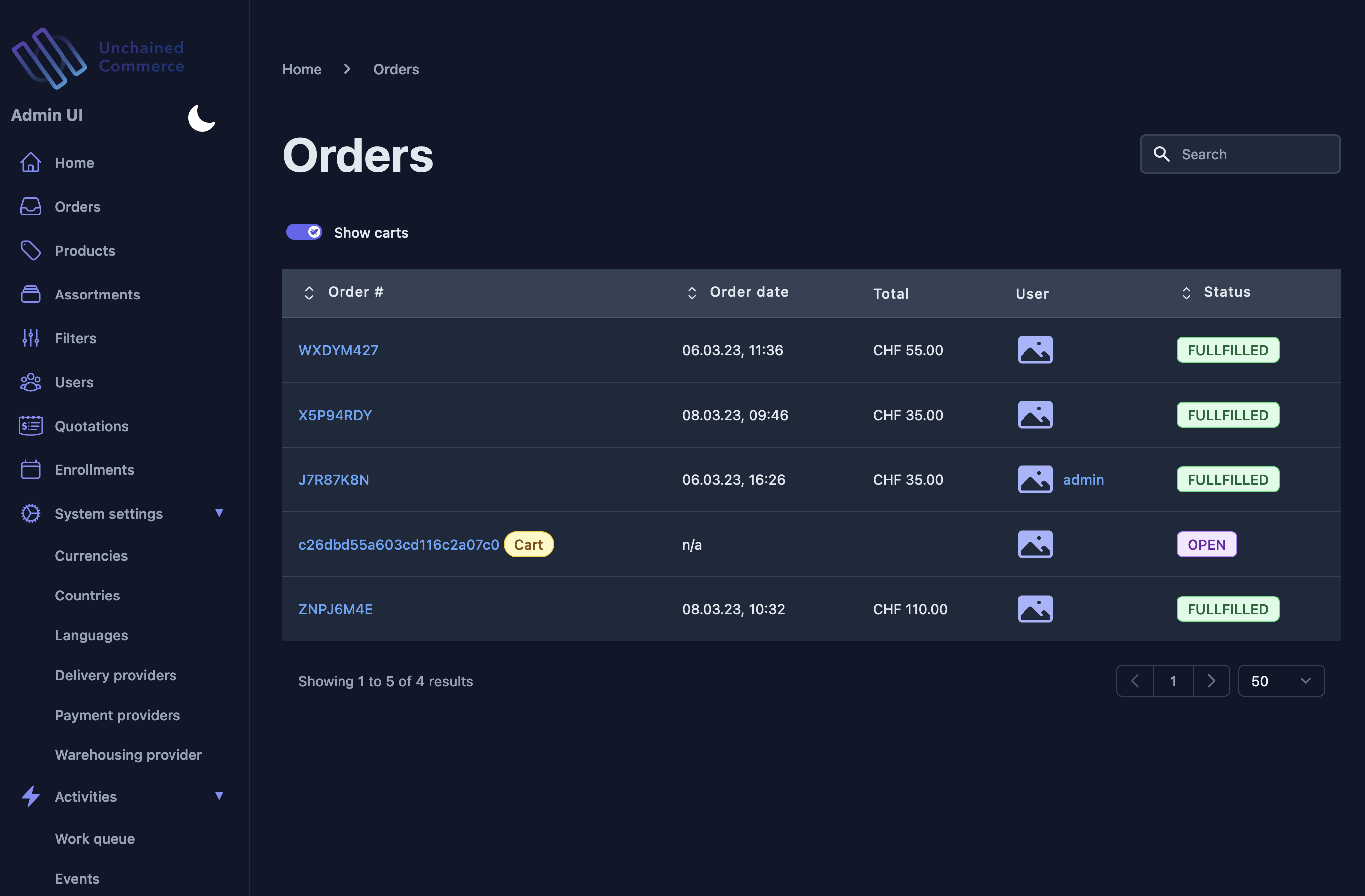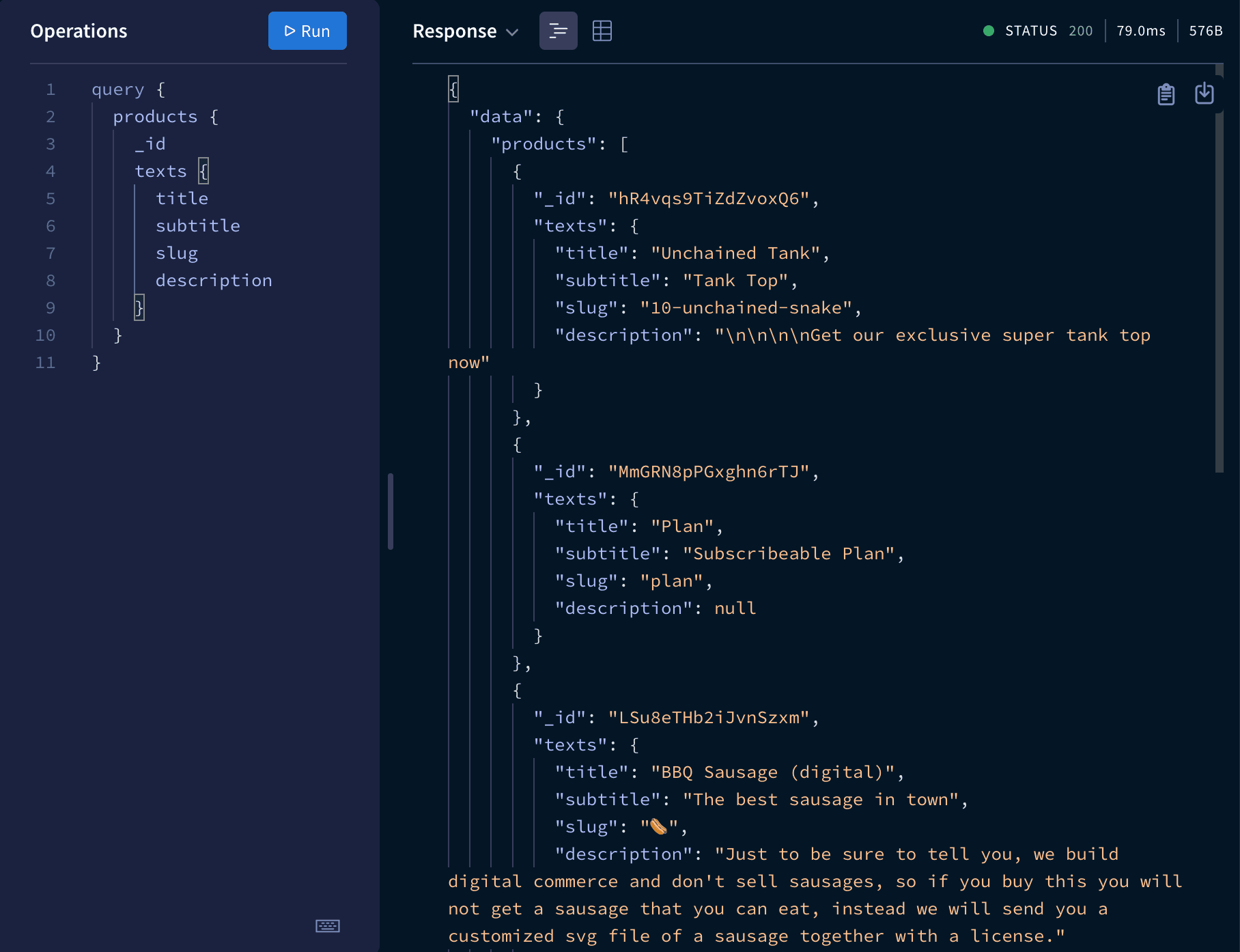Unchained Engine
Implement all the crazy pricing, crypto payments, and discount & loyalty ideas through the unique developer-first approach. Start selling goods, services & subscriptions on any internet-connected device.

(no vendor lock-in)

personalization

Ultra high-speed

Full customization & control

Seamless integration

You own your data

B2B-friendly

Crypto payments

Built in Web Auth support

Customizable messaging

Tailor-made extendable Admin-UI control panel

Built in two-factor authentication support

Customizable access control

The Most Flexible E-Commerce Platform
Built for Developers
All you need is some Javascript. (Node.js) know-how, and our multi-channel enterprise shop system.
To make it even easier, we have created a boilerplate template with all the required initial setups. All you have to do is, copy the code below and execute it in a command line, scaffold a template that suits you, and start developing with Unchained in less than a minute.
npm init @unchainedshopOpen Source
Usage of OSS prevents vendor lock-in. Using software that is open to the public leads to communities that help each other, the software is resilient to economic issues like bankruptcy of the software owner.

Unchained Admin UI
The Unchained Admin UI is our Web UI to all data management APIs that the Unchained Engine provides out of the box. Manage products, collections, users & orders. Compatibility and feature parity with the Unchained Engine.


What is Hackable?
Non-hackable software (like SaaS) uses the technique of customisation, meaning it provides a massive control panel where every aspect of the software can be configured, themed or disabled. Sadly, there is always something that needs additional software development work and requires creating a custom plug-in.
In Unchained Engine, the software flow is changed through code and not through UI, which means a software developer is always required to configure the platform. Our hackable software provides you with basic out-of-the-box customisation, however it allows for the business logic to be fully-customized by the developer. This is achieved through a staged approach ranging from plugins to a full hard fork.
Software Stack in Detail

Node.js ES6
We use the most popular programming language on the web because we think it is key for a hackable software. If you have a hackable software but no coder, what is the point then? As the project manager you will propably always find somebody that can program in JavaScript, while finding people that code in GoLang are rare.

Apollo GraphQL Server
GraphQL is the new REST. Having a schema on the API helps with connecting systems in a micro-service architecture and makes it extremely easy to implement in client apps for all kind of operating systems and programming languages. When adding, removing, and migrating back-end data stores, the API doesn't change from the client's perspective. It's simple to add new types and fields to your API, and similarly straightforward for clients to begin using those fields. This helps design, develop, and deploy features quickly.

MongoDB
We have chosen MongoDB because it is the most popular NoSQL DBMS out there. With a schema-less database, development of plugins and extensions that need to extend the existing data structure is much simpler. The document data model is a powerful way to store and retrieve data that allows developers to move quickly. MongoDB’s horizontal, scale-out architecture can support high volumes of both data and traffic.
How Does It Work?

What Can You Integrate?

Features by Module

Delivery

Subscriptions
- Auto Charge Payments
- Periodically invoice or based on usage
- Pause, up & downsize plans
- Trial mode
- Native and thus works with any payment method

Messaging
- Order confirmations and invoices by E-Mail, SMS or WhatsApp
- Send user notifications via WebPush or traditional systems (see above)
- NFT receipts*

Payments
- Invoice (post- and prepaid)
- PSP Plugins: Stripe, PostFinance, PayPal, Datatrans, Braintree, Worldline, Payrexx
- Unchained Cryptopay: native payment in Bitcoin and Ethereum
- Automatic conversion of price to special currencies
- Bonity-checked invoices (Deltavista)*

Pricing
- B2B special pricing
- Product configuration specific pricing
- Dynamic tax rate and FOREX retrieval
- Product, payment, order or delivery prices configurable
- Order total and weight dependent charges, dynamically calculated by UPS*
- Prices dependent on languages, countries, users, order quantities etc.*

Discounts
- Date range dependent pricing, for ex. Black Friday
- Percentage or absolute deducting codes
- Coupons and Promo-Codes (personal or shared)
- One-time and/or date range restricted codes
- Lottery or random prices: every 1000th buyer receives their order free of charge*

Warehousing
- ERP, as inventory management*
- Manage inventory in Google Docs or Airtable
- (Downloadable) virtual good production for ex. Crypto Tokens
- Fire just-in-time production of any goods*
- Real-time quantities (see an event get sold out live)*

Quotations
- Automatically build individual offers in response to RFPs
- Quotation workflow to confirm and reject offers
- Allow users to digitally negotiate with the vendor

Product Reviews
- Allow users to comment on ordered products
- Allow users to rate a product
- Allow users to post custom data and/or reply to messages
- Intelligent workflow that allows to scan incoming reviews and controls the requirement for manual approval

Faceted Search
- Filters on any hierarchical level
- Filters that get filtered by filters (faceted)
- Range, selection and custom filter types
- Fast (custom index)
- Item count prediction

And so much more
- One shop for one world (multi-country support)
- Price your products in any currency you like, $XLM maybe?
- Internationalization with multi-language support
- Metadata extension on any entity made possible




 Nominated as Best Newcomer 2019
Nominated as Best Newcomer 2019